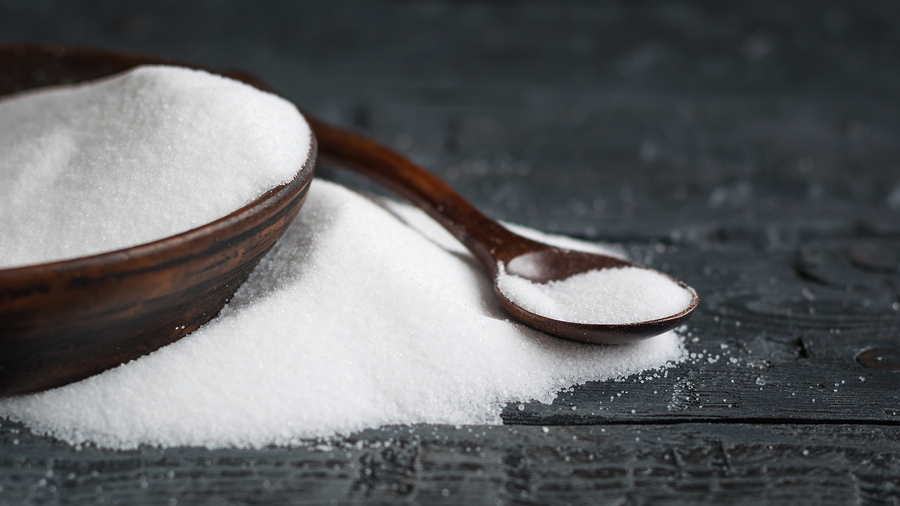As we continue our overview of the 6 tastes, we will focus on the various qualities of the salty taste, the role it plays in the digestive process, as well as the effects it has on our body, mind and spirit.
The salty taste is made up primarily of the water and fire elements. Its qualities are heating, heavy, oily and hydrating. It helps bring balance to those whose constitutions are predominantly ether and air, while potentially aggravating those who have more of the fire and earth elements.
As for the digestive process, the salty taste is the 3rd taste we want to consume in a meal. It helps create emulsification and has a buffering action. Once food enters the small intestine, bile and pancreatic enzymes mix with the food and assists in further digestion of fats and protein.
When we eat something salty, the taste buds on the rear of the tongue become active and send a message to the related organs, which in this case are the kidneys.
Some examples of foods that contain salt:
- Vegetables: celery, cucumber, zucchini, olives, pickles.
- Cheese: cottage cheese, mozarella, feta, parmesan, romano and other hard cheeses.
- Seafood & meat: anchovies, tuna, oysters, smoked fish, eggs, pork, cured meats.
- Sea veggies: seaweed, dulse, kelp, kombu, wakame.
- Herbs & seasonings: nettles, soy sauce, miso, tamari, sodium chloride, sea salt, rock salt.
- Nuts, sesame seeds and foods that are rich in minerals.
When used moderately,salt brings out the flavor in our food. The salty taste can promote appetite, growth, give energy, moisten the body and maintain the water electrolyte balance. Salt is necessary for muscle strength.
In addition, the salt taste stimulates salivation, aids in digestion, absorption, assimilation and helps in the elimination of waste. It also lubricates the tissues, liquefies mucous, works as a laxative and has an anti-flatulent action, removing gases from the colon.
In excess, however, too much salt can weaken the kidneys, worsen skin conditions, cause heat sensations, inflammation, wrinkles, ulcers, hair loss, hyperacidity, and water retention resulting in swelling and edema. Too much salt in the diet can make the blood viscous and cause thickening and narrowing of the blood vessels, producing hypertension (high blood pressure).
Psychologically, salt in moderation enhances the spirit and brings enthusiasm and zest to our life. It helps to promote confidence and courage, as well as prevent dullness, depression and lack of creativity. Emotionally, salt is grounding and soothing to the nervous system. It can also be very addictive, however, and hard to stop eating. Too much salt consumption can cause attachment, greed, possessiveness and irritability.
Stay tuned as we continue this series and explore the pungent taste in our next blog.

